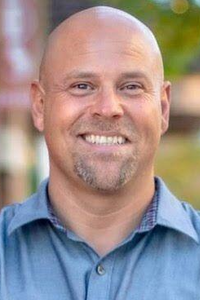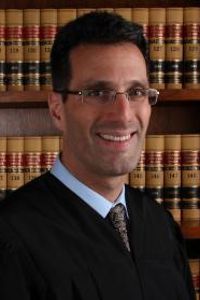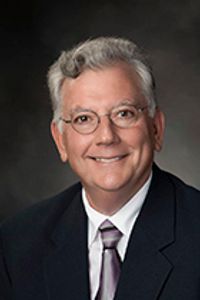Kyle Yudes
Kyle Yudes was a long-shot Republican candidate running for Lieutenant Governor of Wisconsin in 2022. While Yudes ultimately lost in the primary, his spirited underdog campaign provides an interesting case study. This article will provide a comprehensive overview of Yudes’ background, policy positions, campaign messaging, fundraising, and more.
Yudes’ Background
Early Life and Education
Kyle Yudes was born on November 11, 1976 in Eau Claire, Wisconsin. He grew up in the small town of Stanley where his father worked at a grocery store and his mother was a homemaker.
Yudes attended Stanley High School, graduating in 1995. He was involved in student council, football, and Future Business Leaders of America (FBLA).
After high school, Yudes attended the University of Wisconsin-Eau Claire. He earned a Bachelor’s degree in Business Administration in 1999.
Professional Career
After college, Yudes took a job with Coca-Cola as a sales representative covering northwestern Wisconsin. He worked for Coca-Cola from 1999 to 2005.
In 2005, Yudes and his wife Christy started their own business – Flynn Sales & Marketing. The company specializes in merchandising and sales for grocery stores across Wisconsin.
Yudes has served as President of Flynn Sales & Marketing since its founding. He oversees a staff of over 100 employees serving major brands such as Coca-Cola, Anheuser Busch, Johnsonville, and more.
Local Political Involvement
Outside of his professional career, Yudes has been engaged in local Republican politics in Eau Claire.
He served as Treasurer for the Eau Claire County Republican Party from 2010 to 2018. Yudes was also a delegate to the Republican National Convention in 2016.
The Decision to Run for Lieutenant Governor
Motivations for Running
In late 2021, Yudes made the decision to run for Lieutenant Governor of Wisconsin. He was motivated by a few key factors:
- Concerns over crime, education, and taxes in Wisconsin
- Desire to bring an outsider business perspective to the role
- Interest in statewide public service
In interviews, Yudes said he was worried about the direction Wisconsin was headed. He felt his business background could provide a new approach in Madison.
Yudes also saw an open seat for Lieutenant Governor as a rare opportunity to seek statewide office without challenging an incumbent.
Republican Primary Field
In the Republican primary, Yudes faced an uphill climb against a crowded field of experienced politicians. The GOP candidates included:
- Roger Roth – State Senator since 2015 and Senate President since 2021
- Patrick Testin – State Representative since 2017
- Will Martin – Small business owner and former staffer for Governor Scott Walker
- Cindy Werner – US Army veteran and businesswoman
- Jonathan Wichmann – Economist and former US Senate staffer
Underdog Bid Gains Little Traction
As the only first-time candidate without elected experience, Yudes was a significant underdog in the primary. His lack of name recognition and political connections posed a major challenge.
Yudes’ outsider message failed to resonate with many Republican voters who opted for candidates with more government expertise like Roth and Testin.
In the end, Yudes finished 6th out of 8 candidates – capturing just 5% of the primary vote.
Yudes’ Policy Platform and Campaign Messaging
As an inexperienced first-time candidate, Yudes did not run on a particularly robust policy platform. However, a few key themes emerged:
Fiscal Conservatism
Yudes campaigned as a fiscal conservative, supporting lower taxes and reduced government spending. His business background informed this perspective.
Specifically, he called for eliminating Wisconsin’s personal property tax on businesses. Yudes argued this would stimulate economic growth and job creation.
Tough on Crime
Another plank of Yudes’ campaign was getting tough on crime. He called for harsher penalties and mandatory minimum sentences for violent offenses and drug trafficking.
Yudes also opposed reforms like eliminating cash bail. He argued the changes would put dangerous criminals back on the streets.
Education – School Choice Expansion
On education, Yudes joined most Republicans in pushing for an expanded school voucher program. This would give families more options beyond traditional public schools.
Yudes touted school choice as the best way to improve academic outcomes, especially for disadvantaged students in failing districts.
Conservative Social Issues
On social issues, Yudes aligned with the traditional Republican base. He described himself as “100% pro-life” and opposed abortion rights. Yudes also supported 2nd Amendment gun rights.
Yudes’ Fundraising and Campaign Spending
As a first-time candidate, fundraising posed a major hurdle for Yudes’ campaign. He was unable to match the war chests of seasoned politicians like Roger Roth.
Total Raised and Spent
According to campaign finance filings, Yudes raised $41,254 and spent $51,998 during the course of his campaign.
This put him near the bottom of the Republican primary field in terms of total fundraising. For example, frontrunner Roger Roth raised over $300,000.
Sources of Contributions
Yudes’ campaign was funded largely through his own personal contributions along with small donations from individuals.
- His largest donors were himself and his wife Christy, providing $20,360 combined.
- Other top contributors were business associates and friends who gave between $500-$2,500 each.
- Yudes did not attract any PAC donations or support from the state Republican party.
Allocation of Campaign Spending
In terms of spending, Yudes focused heavily on radio/TV advertising and campaign signs/flyers:
- $15,000 went to the consulting firm of his top donors, the Flynns
- $8,755 was paid to Yudes himself for reimbursements
- $10,430 was spent on radio ads and Facebook marketing
- $3,500 went towards yard signs, banners, and flyers
Yudes’ Campaign Messaging and Public Statements
Radio/TV Ads
Yudes’ main campaign messaging was through radio and online video ads. These ads focused on his conservative policies and outsider status.
One 30-second radio spot introduced Yudes as “not just another politician, but a conservative small businessman.” It touted his pro-life and anti-tax credentials.
An online ad featured Yudes in a factory, highlighting his business background. He criticized “career politicians” for Wisconsin’s problems.
Social Media Presence
Yudes maintained active Facebook and Twitter accounts to connect with voters. Social media allowed him to bypass traditional media lacking coverage of his underdog bid.
On social media, Yudes posted updates from campaign stops, commentary on news events, and attacks on Democratic policies.
Yudes also used social platforms to share his policy positions and personal background with voters.
Public Appearances
With limited resources, Yudes focused campaign appearances on conservative talk radio shows and local GOP events.
He made several appearances on regional conservative talk radio programs to discuss his policy views and critiques of Democrats.
Yudes also spoke and met voters at county Republican Party meetings and patriotic events like Memorial Day parades.
Avoiding Local Newspaper Interviews/Editorial Boards
Interestingly, Yudes appeared to dodge requests for interviews and meetings with editorial boards from Wisconsin newspapers like the Milwaukee Journal-Sentinel and the Eau Claire Leader-Telegram.
This seemed to be a strategic choice to avoid public statements or scrutiny from non-conservative media outlets.
Limited Specific Policy Details
Overall, Yudes stuck to general conservative talking points during his campaign but offered few specific policy details. This was likely a result of his lack of government experience.
For voters looking for in-depth policy plans, Yudes lacked the granular proposals provided by veteran officeholders like Roth and Testin.
Yudes’ Loss in the Republican Primary
Despite his spirited underdog effort, Yudes was crushed in the August 9th Republican primary:
- He finished in 6th place out of 8 candidates
- Yudes received just 32,051 votes – about 5% of the total
- Roger Roth won with 30% of the vote, while the 2nd place finisher Patrick Testin received 18%
Explanations for Yudes’ Poor Performance
There are a few factors that explain Yudes’ landslide loss:
- Lack of name recognition: As a first-time candidate, Yudes had very little public profile across Wisconsin. Even after months campaigning, most primary voters still did not know who he was.
- Too crowded of a field: The 8-candidate primary was simply too crowded for an unknown like Yudes to stand out, especially against three experienced state legislators.
- Not conservative enough: Despite right-leaning positions, some primary voters may have viewed Yudes as not conservative enough compared to candidates like Wichmann and King.
- Business background lacked appeal: Yudes’ messaging around his private sector background failed to resonate. GOP primary electorates are often skeptical of business experience.
- Ran a shoestring campaign: Yudes’ lack of fundraising meant he couldn’t afford the staff or advertising to effectively reach voters statewide in a competitive primary.
Yudes’ Concession and Response
After his decisive defeat, Yudes offered brief concession remarks on Facebook, thanking his supporters and congratulating the other candidates.
In a subsequent local radio interview, he expressed disappointment but said he was proud of the campaign he and his team ran. Yudes ruled out running for public office again in the near future.
Legacy and Implications of Yudes’ Long-Shot Candidacy
While it ultimately fell short by a wide margin, Kyle Yudes’ underdog campaign for Lieutenant Governor provides some interesting insights and implications:
Uphill Battle for Unknown Challengers
Yudes’ experience shows how difficult it is for unknown first-time candidates to break through in competitive primaries – especially in statewide races where name ID is critical. This highlights structural barriers that benefit incumbents and established politicians.
Populist Appeal Has Limits in GOP Primaries
Despite anti-establishment messaging, Republican primary voters in Wisconsin still favored experienced candidates over an outsider like Yudes. This illustrates the limitations of running simply as a political outsider.
Fundraising Matters…A Lot
Yudes’ severe lack of resources doomed his effort. The campaign was unable to effectively promote his message to voters across the state. Money matters greatly in political campaigns, especially at the statewide level.
Conservative Media Friendly to Long Shots
While local mainstream media ignored him, Yudes was able to utilize conservative talk radio and social media to get his message out. Right-leaning outlets seem more open to hosting lesser-known candidates.
Losing Candidates Can Impact Future Races
Despite his loss, Yudes’ candidacy could have implications for him and other Republicans down the road. For instance, he could run for local office in Eau Claire or back a statewide candidate who supported him. Losing candidates can still matter in future elections.
Conclusion
Kyle Yudes’ long-shot campaign for Lieutenant Governor of Wisconsin ultimately ended in a lopsided defeat during the 2022 Republican primary. However, his underdog candidacy still provides an interesting example of how first-time candidates can attempt to break through in challenging races where they are severely under-resourced and unknown.
While Yudes’ lack of political experience and funding prevented his campaign from taking off in a crowded statewide primary, he managed to spread his conservative message through nontraditional channels like conservative talk radio and social media. This allowed him to bypass traditional media outlets that ignored his underdog bid.
Moving forward, Yudes’ candidacy shows how difficult it is for unknown challengers to succeed in competitive primaries at the state level. But his spirited effort demonstrates how embracing an outsider identity and leveraging grassroots and conservative media can offer a path for some ambitious, first-time candidates facing a steep uphill climb.
FAQs
1. How long was Kyle Yudes’ political career?
Kyle Yudes had never run for public office before launching his 2022 campaign for Lieutenant Governor of Wisconsin. So his political career essentially lasted just the duration of his unsuccessful primary run – around 9 months from announcing his candidacy to losing on primary election day.
2. What job did Kyle Yudes have before running for Lieutenant Governor?
Yudes worked in the beverage industry before starting his own merchandising and sales business. He was a sales rep for Coca-Cola from 1999-2005. In 2005, Yudes and his wife founded Flynn Sales & Marketing, which he still runs as President.
3. How much money did Yudes raise and spend?
According to campaign finance reports, Yudes raised around $41,000 and spent around $52,000 over the course of his 2022 campaign for Lieutenant Governor. His lack of fundraising was one of the biggest challenges facing his underdog primary bid.
4. What were some of Yudes’ key policy positions?
Yudes campaigned as a fiscal conservative supporting lower taxes and reduced government spending. He also took right-leaning positions on abortion, gun rights, education, and crime. However, he did not provide many detailed policy proposals during his campaign.
5. What percentage of the vote did Yudes receive in the Republican primary?
Yudes finished in 6th place out of 8 candidates in the August 2022 Republican primary for Lieutenant Governor. He received just 5.4% of the vote, while the winner Roger Roth received 30% of the primary vote.








